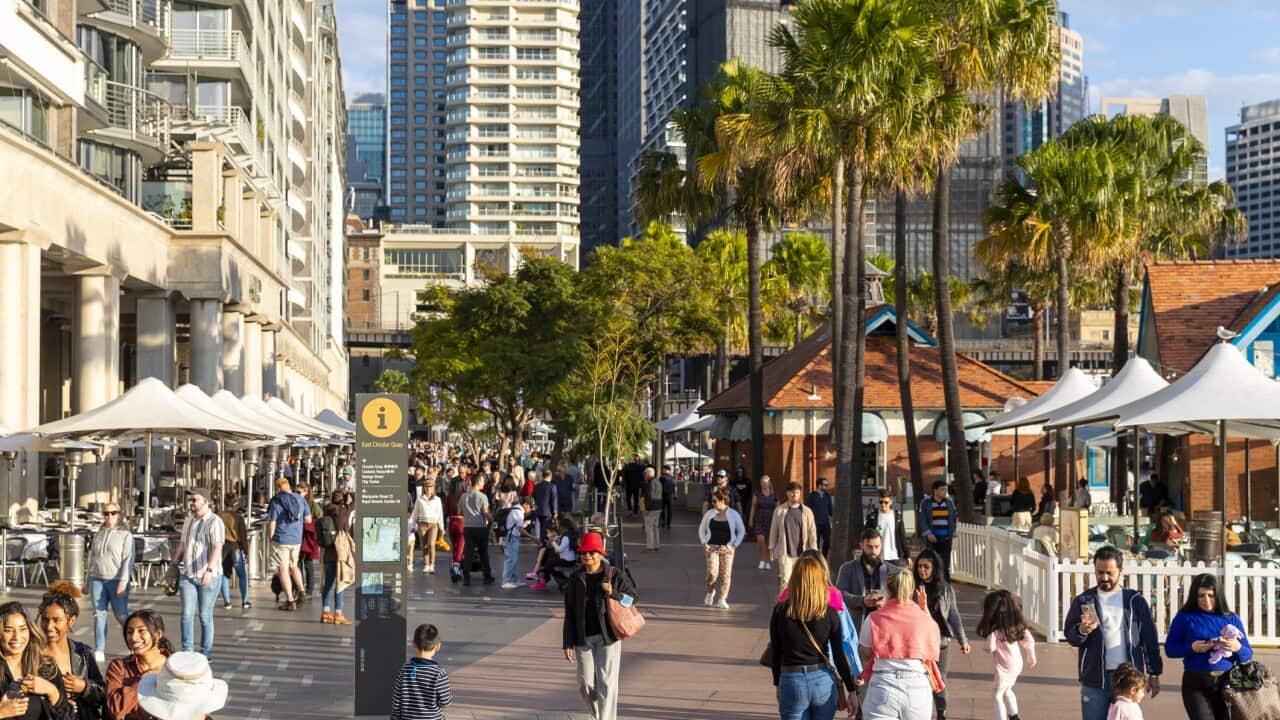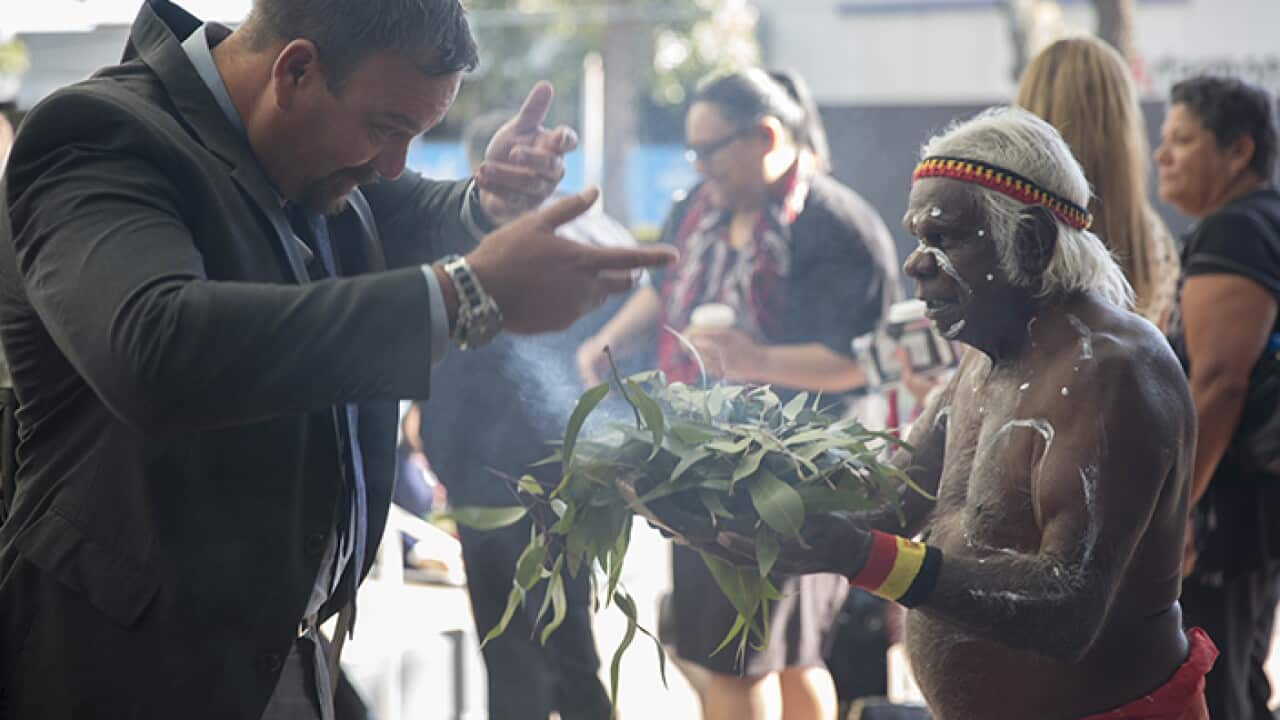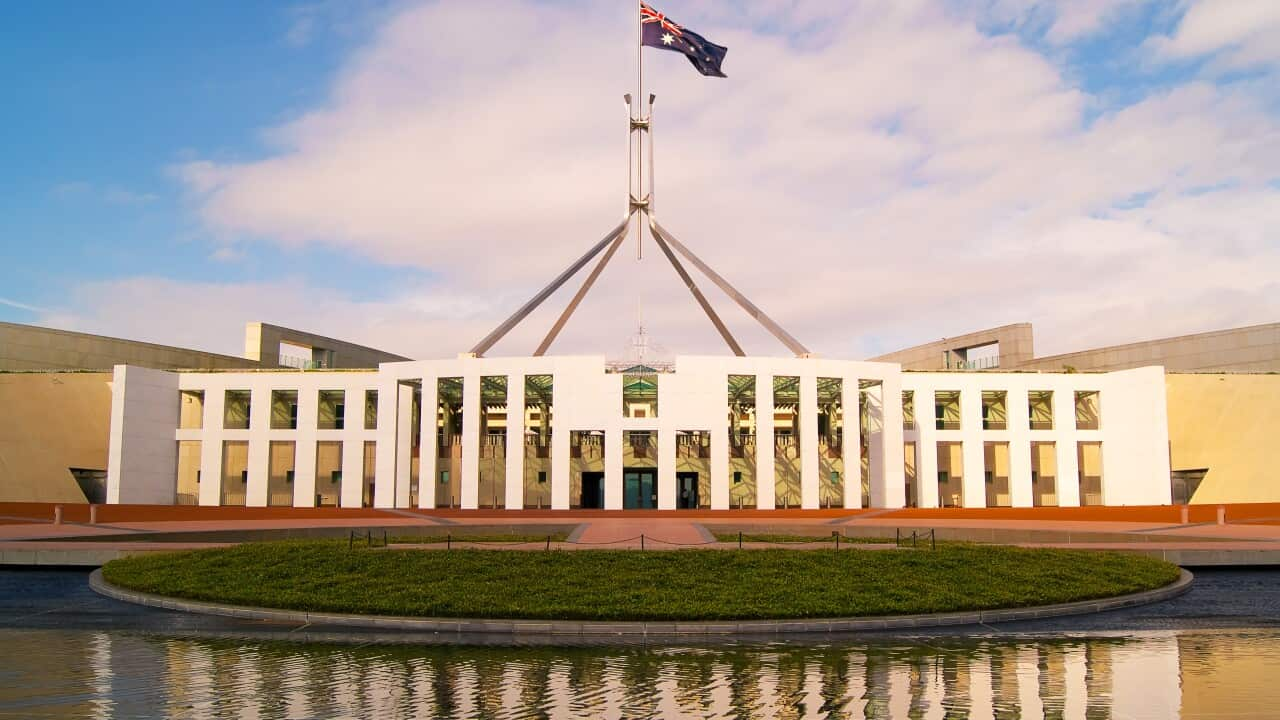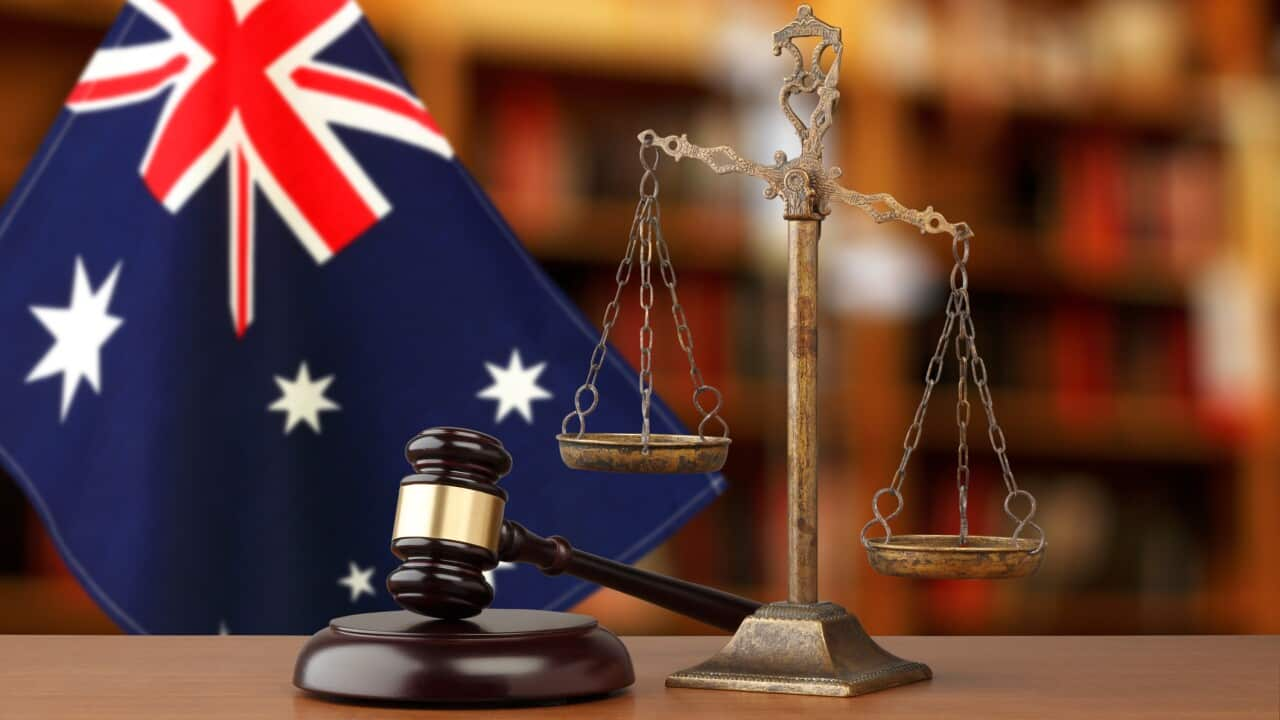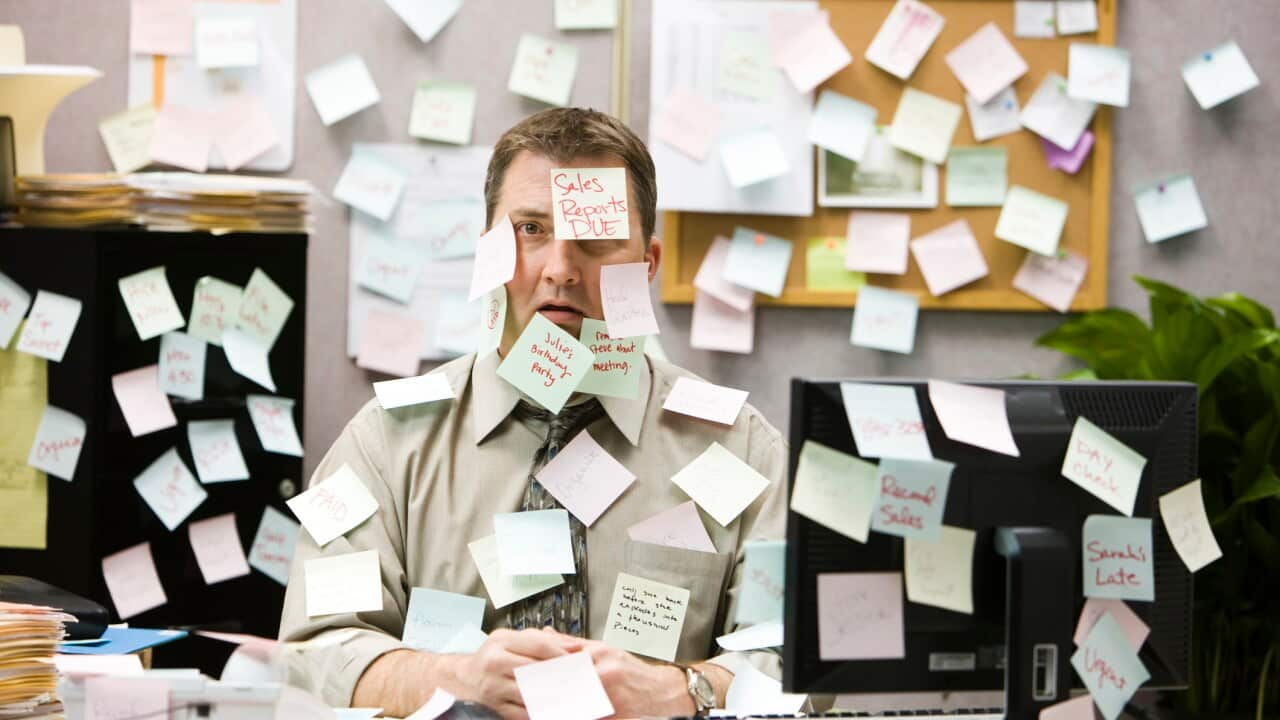Josipa Kosanovic
This is a special episode of the Australian Citizenship podcast by SBS Learn English. So I'd love to begin with a special Acknowledgement of Country given by Penelope Towney, a Wiradjuri and Palawa girl.
Penelope Towney
(Acknowledgment of Country in language)
Josipa Kosanovic
I'm Josipa Kosanovic, and I'm thrilled to be your guide as you learn the information and language needed to become an Australian citizen.
Josipa Kosanovic
But as I said at the start, this episode is special.
Josipa Kosanovic
Australia is sometimes thought of as a young country, but Australia is home to the oldest continuous cultures in the world. This episode is about acknowledging and respecting the people who have called this land home for much longer than any of us, Aboriginal and Torres Strait Islander peoples.
Josipa Kosanovic
The information in this bonus episode isn't all included in the citizenship test. So it is a bit different from the rest of the series. We'll hear from experts and community leaders on the customs and stories of Aboriginal and Torres Strait Islander peoples, and we'll learn how new citizens and First Nations cultures can come together. So if you really want to feel like you belong in this amazing country, keep listening.
person 1
Um, Welcome to Country. I'm not really sure about that.
person 2
Welcome to Country is acknowledgement. I believe when someone lands in Australia.
person 3
What is Welcome to Country? I have no idea. Welcome to Country is, um, acknowledging the Aboriginal people and their land.
person 4
I know Welcome to Country is something that people do before an important event, but apart from that, sorry, I don't know.
Josipa Kosanovic
As I walked around the streets of Sydney with a microphone in hand, I realised that learning about the First Nations peoples and cultures is not just important for new arrivals like us, but also for many Australians who are born here. So let's start from the beginning. What is a Welcome to Country?
Rhoda Roberts AO
A Welcome to Country is acknowledging where the elder or the Custodian or the Traditional Owner of that country welcomes you onto their country.
Rhoda Roberts AO
Uh, it's a bit like border control in that they'll call you in, there might be a smoking ceremony, there might be a water ceremony, there might be a sweat ceremony. It really depends on where you are across Australia.
Rhoda Roberts AO
But basically, they're welcoming you onto their lands. They're doing it so you have safe passage on those lands, and they're smoking you for many reasons. Like it's a cleansing, it's a healing, but also they're ensuring that you smell like all the other groups on that nation.
Rhoda Roberts AO
And that's a way that animals don't, um, smell something different and run away, and it's got many meanings. But the main thing about Welcome to Country, it is something that we've always practised. We have very many different names for it, but we wanted Australians to understand that this protocol is simply good manners. It's like when you visit someone's house, you will knock on the door before you enter.
Josipa Kosanovic
That was Rhoda Roberts AO, a Widjabul Wiyebal woman from Bundjalung Nation who in the 1980s coined the term Welcome to Country. To coin a term means to create or invent a new word or phrase that becomes widely used and accepted. So when someone coins a term, like Rhoda did, they're essentially creating a new word or expression that did not exist before.
Josipa Kosanovic
Rhoda has spent her career promoting and celebrating the arts and culture of Australia's Indigenous peoples and in recognition of her work in 2016, she was appointed as an Officer of the Order of Australia. That's one of the highest levels of awards that one can get from the Australian government. Rhoda also coined the term Calling Country. I wonder what that is about?
Rhoda Roberts AO
So in the old ways, this is before the arrival of the white man.
Rhoda Roberts AO
Every nation across Australia would travel to other territories on what we called Songlines.
Rhoda Roberts AO
And Songlines is a song you sing.
Rhoda Roberts AO
And it's done in different rhythms depending on the landscape.
Rhoda Roberts AO
But you're singing, and in that song, it gives you the information of when you reach a certain destination on those lands, it might tell you where the best drinking water source is. It might tell you where there's danger of crocodiles. It might tell you where you can camp for the night. So there are lots of information in the Songline by the time you reach the boundary of another territory or homeland.
Rhoda Roberts AO
There's a certain tone in the Songline that calls to them.
Rhoda Roberts AO
The owners of that country will call back and invite you across the border, and then of course they welcome you, you gift them, and then they do the sweat, the cleansing, the water, the smoking ceremony to ensure,
Rhoda Roberts AO
That you then can travel safely across their country.
Josipa Kosanovic
Besides Welcome to Country and Calling Country, what are some cultural practises or key historical events that new citizens should be aware of?
Rhoda Roberts AO
Since Federation of 1909 through to 1967, Aboriginal and Torres Strait Islander people were not counted on our national census. We were actually counted with the sheep.
Rhoda Roberts AO
And the flora.
Rhoda Roberts AO
And in 1967 there was a referendum that asked Australians to vote yes for Aborigines.
Rhoda Roberts AO
93.7% of Australians ticked the yes box, which meant that we became citizens of our country.
Josipa Kosanovic
I hope you were paying attention to what Rhoda said about the 1967 referendum, because it could come up in your citizenship test. And if you're not sure about what a referendum is, and what's required to change the Australian Constitution,
Josipa Kosanovic
check out our video series on Australian citizenship or listen to the other episodes from this series. But don't leave just yet though, because an exciting conversation with two Wiradjuri warriors is coming your way.
person 4
When people just mention about First Nation of the Country, I think the first thing come to my mind is gratitude.
person 2
I know that they helped build this country and they are not appreciated a
person 3
lot. I know that there are many different language groups. I know that there are different totemic identities associated with each mob.
person 5
I know how the Australian culture sees them at the moment. I know what actions are done to rectify what's happened, um, but outside of that, not so much. First of all, I don't think all of us know enough. We're not taught enough when we're younger. It's not cool.
Josipa Kosanovic
We all know Australia is a country rich in cultural diversity with people from a wide range of ethnic backgrounds and beliefs. This year I celebrated Diwali, Ramadan, Lunar new year and Easter. I mean, how amazing is that.
Josipa Kosanovic
There's something else that makes the country we want to call home special. Our First Nations peoples have history and tradition that spans over 60,000 years and learning about their culture cannot be done anywhere else in the world.
Josipa Kosanovic
With me in the studio are Angeline Penrith and Luke Carroll, whom you might know from TV shows and movies like Australian Rules, Redfern Now, Mother Mountain, Black Comedy and much more… Hi, guys. Thank you for joining me.
Angeline Penrith
Hey, you mob. We've got two Wiradjuri warriors here with the Josipa, proud Wiradjuri people, and
Luke Carroll
We just want to acknowledge that we're on Cammeraygal Country of the Eora Nation here in Warrane, which is the traditional name of Sydney. So, uh, pleased to be here with you in, in the studio. Thank you.
Josipa Kosanovic
And what was that salute that you gave us at the beginning? Can you repeat it?
Luke Carroll
It's a Wiradjuri word for good day.
Josipa Kosanovic
Awesome. We recently made a video series for people who want to become Australian citizens.
Angeline Penrith
Yeah, it was a good experience, informative for myself.
Luke Carroll
Yeah, the book Our Common Bond provides basically an overview of Australian history and values and customs and also the government. So, but it contains very little information
Luke Carroll
about us, First Nations people and, and our culture. So that's the reason why we decided to make this podcast.
Angeline Penrith
And it's great to be included.
Josipa Kosanovic
In your opinion, what is important for new citizens to learn about First Nations peoples and cultures in Australia?
Luke Carroll
Well, I think what's very important is the, the history of our First Nations people in this country. You know, we are the longest continuing culture in the world. We've been here for over 65,000 plus years, which is a very, very, very long time, and
Luke Carroll
You know, we'll be here for another 65,000 years. Minimum, that's right. Also, the ongoing impacts of colonisation since 1788, and the effects that still are around for us as a people, and also the diversity of the cultures and languages within our own culture. There are so many different languages in our culture. Over 500, yeah. But a lot of those have been lost due to the colonisation, so that's the impacts.
Luke Carroll
That we need our citizens coming into the country to learn about. But our own language, Wiradjuri language has been revived, and Uncle Stan Grant Senior has done a great job with that. So, yeah, we just want our new citizens to know about that.
Angeline Penrith
That's right. We come from the Wiradjuri people, one of the largest nations, and we're reviving culture
Angeline Penrith
ourselves, getting back to our essence and our roots. So, when we talk about culture, it's just as important as religion or a government infrastructure to us. So, whether it's a lot of things that you will hear is, um, connection to country, kingship,
Angeline Penrith
and elders are the first couple of words that you will hear a lot when you come into contact with First Nations mob in Australia. Our elders are like the big boss. They're our care caretakers, our, you know, mentors, anything of authority would probably come under our elders' guidance.
Josipa Kosanovic
To become an Australian citizen, migrants need to learn about the Australian government, its legal system, core values, and customs.
Josipa Kosanovic
But First Nations peoples also have laws that govern social behaviour and relationships, right?
Luke Carroll
Yes, that's right. Yes. We say law, but it's spelled L O R E, as you said. And we were able to survive for so long, maintaining these special laws within our culture. And when the first settlers came here, they said this was a wasteland, terra nullius, but that was so much far from the facts. You know, we had a hierarchical system in place. We had laws and customs in place that still stand to this day.
Luke Carroll
And those laws and traditions and customs were, you know, passed down through song, through dance, through spoken word, from our elders down to our younger people, and then that generation moved up, and it passed down again and again and again over all those thousands of years. And it continues to this day.
Josipa Kosanovic
And, you know, will you give us some example of?
Luke Carroll
Yep. So there, you know, there are men's and women's business that happens in our culture, so.
Luke Carroll
You know, I've been lucky enough to go out into, you know, remote communities where it's still practised really strongly and, you know, you had your men business, and I, you can't talk too much about it, because it's culturally disrespectful too. And but it's basically, you know, you, you, you become a man, you go through your journey as a man, a male, in Aboriginal culture, you go on a journey with the elders, the male elders, and you go on country.
Luke Carroll
And you go through certain things through, through the process initiation, that's correct, yeah. So becoming initiation into manhood, and that's done with just, you know, the men of the group. You go out in the country for weeks on end, and you go through a process of that. And then, you know, the women have their own process
Luke Carroll
as well. There's also men's and women's business areas on the land that men can't go to and women can't go to. And for instance, women's business places is where, you know, women give birth, birthplace and stuff, so men aren't allowed out onto women's business areas and vice versa for the men.
Josipa Kosanovic
So, Angeline, is there anything about women's business that you can share with us?
Angeline Penrith
I mean, pretty much similar.
Angeline Penrith
You will have an initiation process, you will go bush.
Angeline Penrith
Um, the elders will decide. I mean, you could go out for a period of time and come back, and if the elders don't feel like you have
Angeline Penrith
Uh, transformed, changed, or whatever, you will be sent out again. You know, they're similar, but just, you know, a male and a female version of
Angeline Penrith
the process.
person 3
I think it's called Dharug. The Dharug people lived on the
person 3
country of where I'm from.
person 1
I don't know about the Aboriginal name, but I'll learn more about my history.
person 2
I do not know the name of the Aboriginal country that I live on. The
person 4
Aboriginal name of the country is Terra nullius, I think.
person 5
I do not know the Aboriginal name of the country I live on.
Josipa Kosanovic
Is it important to learn the Aboriginal name of the country in which we live and work?
Angeline Penrith
Yeah, cause it's the least you can do. It's like knowing the capital of Australia, you know? It's just as important going forward and engaging with First Nations mob. That's just, you know,
Angeline Penrith
The basics, yeah.
Luke Carroll
Yeah, most definitely, because, you know, we talk about the effects of colonisation, and most of the names that are given to areas in this country are non-traditional names. So we're reclaiming that as well. I know there are a lot of suburb in Sydney that have got, uh, traditional Aboriginal names already that could
Luke Carroll
Coogee and Bondi, and Maroubra . But we want more of those to be, you know, we want our capital cities to be known in their traditional names.
Josipa Kosanovic
Let's talk about some terms that have different meaning in Western and traditional custodian terminology.
Angeline Penrith
Yes. Let's talk about that.
Angeline Penrith
So, um, the word custodian in Western English cultures could mean, you know, responsible for taking care, managing something such as property collections, you know, like a caretaker, but it's much more in depth than that for First Nations culture. You know, um, it's a highly responsible, probably one of the most highest.
Angeline Penrith
You know, um, statuses within First Nations to be a custodian. You have responsibility for land, for how culture is run, for the community.
Josipa Kosanovic
Is custodian normally an elderly person, or age is not important? No,
Angeline Penrith
I mean, age is not important. I mean, even through ceremonies, so to become a woman or a man, it's in modern.
Angeline Penrith
Context, there are people that haven't been through it, and at 30, went back through ceremony. So, that might give you a glimpse on how Aboriginal culture's not necessarily bound by age.
Angeline Penrith
It's about the right person.
Luke Carroll
And it's our elders who choose that person, don't they? who show a responsibility within our society. They go, OK, he's a, a good young person that's gonna come through, or she is a good young person coming through. We don't give them the knowledge for them to be the custodians of our story and our culture moving forward for the next generation.
Angeline Penrith
Yeah. And it's also because First Nations people die 20 years before everyone else. So we just don't have the luxury of having a lot of elders or reaching a certain age. So,
Angeline Penrith
You will become a woman or a man before most of other cultures will.
Josipa Kosanovic
Another term that, uh, we often hear when interacting with First Nations peoples is uncle and auntie.
Luke Carroll
We hear it a lot and, and brother, sister,
Josipa Kosanovic
In my culture, uncle and aunties is normally someone that you are related to. It's like sister or brother of your parents or their husband and wife. But for you, it's a bit different, right?
Angeline Penrith
It doesn't necessarily have to be someone we're blood related to. It's a respect thing. And also that cultural thing that we're all never really separated, you know? Like, you belong, you know, so I could travel on someone else's country, and they'd be, niece, make me a cup of tea, you know? Yeah, Aunty , that's right. So, yeah, it's just a way of looking at our mob and paying respects to them. Yeah.
Josipa Kosanovic
You mentioned before the word kinship. That stands for social ties, relationships based on blood, marriage, and adoption.
Angeline Penrith
Yes. It's very much, kinship's very much intricate to our culture.
Angeline Penrith
So how to describe it in a colonial sense is, is.
Angeline Penrith
A little bit difficult, um.
Angeline Penrith
Basically, kingship is the infrastructure of how families or mob or groups are run. And like, you would rarely ever hear First Nations mob say, step.
Angeline Penrith
Yes. You know, it's not in our vocabulary,
Angeline Penrith
so that's, yeah.
Angeline Penrith
You know, that's that kingship, but we're closer than that. Like, you always bring mob family, auntie, kinship. We're here.
Luke Carroll
In Aboriginal family and culture, we have extended family. Sometimes, you know, we get adopted as such by the extended family. You know, we may have someone that we call mom that's not our mum, but out of respect, we do that because they've had a big impact on our lives, or auntie or uncle.
Luke Carroll
Who aren't blood related, but out of that respect for what they've done to us in that extended family unit, we call them uncle and aunt. And, um, it's, like I said, it's very much respectful when you call someone that. It comes from a place of big and deep respect.
Josipa Kosanovic
Talking about respect, what is something that we as migrants should keep in mind when interacting with First Nations peoples?
Luke Carroll
If you want to ask any questions about us, the best place to get your information from is from an Aboriginal person. So I don't think if you come up to an Aboriginal person and
Luke Carroll
You know, ask questions, we can educate you about whatever questions you have, knowing that it may be slightly disrespectful or it may not, but we can understand that you may not, may not have had a big education about us.
Angeline Penrith
Just be open. Try not to approach questions that are, you know, in and around misconceptions and stereotypes, but it's OK, because most First Nations mob are open to dialogue of any sorts, generally. You know, we're very open people.
Angeline Penrith
But I would just say be mindful of some of the misconceptions you might get around First Nations mob, and yeah, just be open and so will we.
Luke Carroll
Yeah, but do ask questions. Yeah, yeah, cause we'd love to educate people, yeah, we do. And especially, you know, with our, like I said earlier, we live in such a multicultural
Luke Carroll
You know, country, and, you know, we're learning as Aboriginal people about the other cultures in the country coming in. So, it'll be a two-way street. You know, you may have several questions, but we may have several questions about you and your culture as well, so it's a beautiful, it can be a beautiful conversation.
Josipa Kosanovic
Angeline and Luke do love a good yarn. Yarn is a word you'll often hear among First Nations peoples, and to have a yarn means to have a chat. Angeline also mentioned misconceptions and stereotypes. These are commonly held beliefs that are not entirely true or are based on limited or false information. By challenging misconceptions and stereotypes.
Josipa Kosanovic
And advocating for indigenous rights, we can help to create a more inclusive society and as migrants. Isn't that something we can benefit from as well? Rhoda Roberts says that learning about First Nations peoples can also help us get a better sense of belonging in Australia.
Rhoda Roberts AO
I think learning about our cultures.
Rhoda Roberts AO
Makes you learn about the country, and I'm talking about the landscape, the places you'll be living. There's so much history and some incredible stories, and you'll often hear the stories of how the river was formed or how the mountains were formed.
Rhoda Roberts AO
And it really tells you about where you're living. Hearing the language of Aboriginal and Torres Strait Islander people who are also referred to as First Nations,
Rhoda Roberts AO
validates that their language holds a lot of their religion and their rituals. Like any sector of society, we have our leaders, we have our religious leaders, we have our workers, we have industry and resource.
Rhoda Roberts AO
And like all other sectors of society, we have very many different opinions, we, um,
Rhoda Roberts AO
Have issues from substance abuse to domestic violence, um, the everyday issues of social media in the 21st century. So when you arrive, look at us, it's a bit like same, same but different.
Rhoda Roberts AO
Aboriginal people have had a devastating history. Our children were taken. That occurred in many places. In many areas we were at war with the arrival of the pioneers.
Rhoda Roberts AO
In many places there was.
Rhoda Roberts AO
Uh, good people.
Rhoda Roberts AO
Whether they were white or black, and there were good people who forged relationships, so there's the good and the bad, but when you,
Rhoda Roberts AO
and you see an Aboriginal person.
Rhoda Roberts AO
They want to embrace you, because our theory is you come to country here, you're part of us.
Rhoda Roberts AO
And our philosophy about the land that we live on is about us caretaking it and nurturing it. And with that nurturing, we also extend and embrace the people who live on our country.
Rhoda Roberts AO
And we asked them, can you afford the land, the same love that you would afford your mother?
Josipa Kosanovic
As we conclude this episode, I leave you with Rhoda's thought provoking question. Can you afford the land the same love that you would afford your mother?
Josipa Kosanovic
This question can help us reflect on our connection to our new home, its history, and its First Nations peoples. If we are keen to learn.
person 4
I would like to learn more about fascination people. I would like to learn in the future about peoples and cultures. I would want
person 2
to learn more about them. Oh,
person 1
I would definitely love to know more things about Aboriginal culture and yeah, Aboriginal people.
person 3
I would like to learn more about first people, nations and cultures.
person 5
I would definitely want to learn about the land that I'm living in right now.
Josipa Kosanovic
I want to extend special thanks to our expert Rhoda Roberts for her invaluable contribution. We also want to acknowledge the voices of Wiradjuri warriors Luke Carroll and Angeline Penrith, who offered their perspective and personal experiences. I'm Josipa Kosanovic, and I wrote and produced this episode.
Josipa Kosanovic
SBS Learn English Program Manager is Janine Googan, our Head of Planning is Pamela Cook, Max Gosford was in charge of sound design, and our theme music was composed by Rick Bull. We couldn't have made this series happen without the amazing support
Josipa Kosanovic
and insights from our awesome colleagues, Claudianna Bianco and Caroline Gates. Big shoutout to them!
Remember to stay curious and continue exploring everything Australia has to offer. Catch you on the next adventure. Thank you for learning with me.
outro
SBS Learn English helps Australians to speak, understand and connect.
